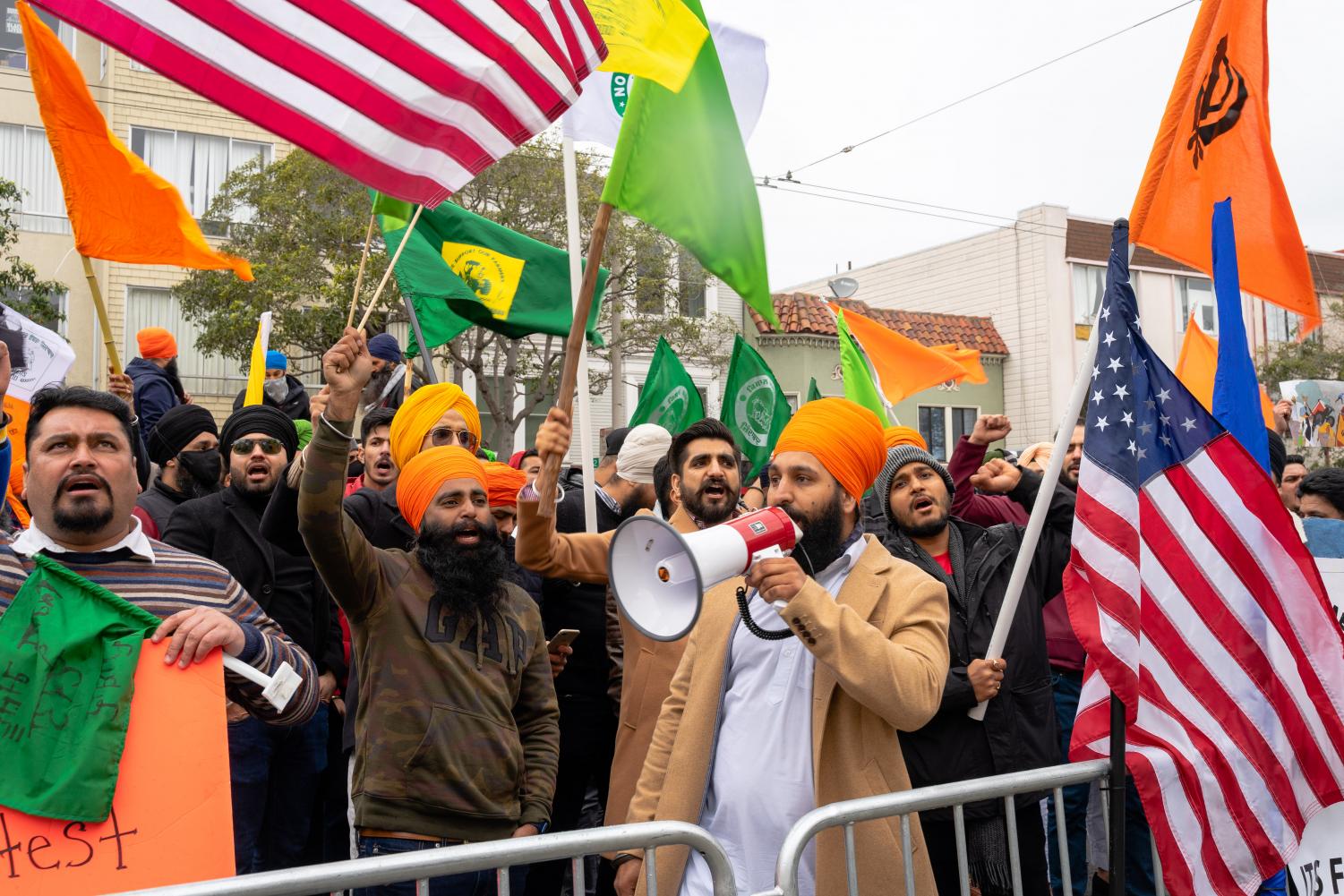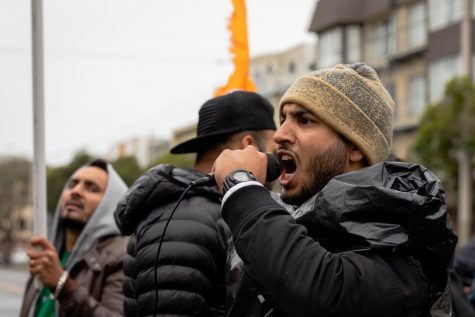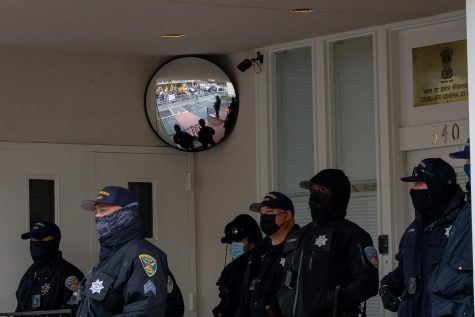



For the Sikhs demonstrating, India’s new agricultural laws mark the latest in decades of injustice.
January 27, 2021

Around 100 demonstrators, largely Sikh, gathered outside of the Indian consulate in San Francisco’s Richmond District on Tuesday to voice their opposition to the Indian government’s new agricultural laws.
The new laws, initiated by the Indian Parliament in September of 2020, aim to privatize farming in India and remove a mandatory minimum price in which crops must be purchased. This move would devastate Indian farmers, particularly those in Punjab, one of the highest agricultural producing states in India.
The demonstration was organized by Sikhs For Justice, a U.S.-based Sikh human rights organization. It is the most recent in a series of Sikh-led protests against India’s new farming laws, including the caravan protest held in early December that brought thousands of cars across the Bay Bridge to support the Indian farmers. Similar demonstrations took place in cities around the world like New York City, Washington D.C., Vancouver and London.
“We have already suffered a lot during our time until up to now,” said Ashwinder Singh, a 23-year-old truck driver who made it to the event. “The laws that they’re making are completely against us even though they’re saying that it’s supposed to help us.”
Sharan Cheema, a 33-year-old restaurateur, said she came to the protest in solidarity with her farming family back home in Punjab, India. Cheema said the new laws strip the livelihood away from the thousands of farmers who depend on the current system for income.
As of right now, India guarantees farmers a “Minimum Support Price,” meaning farmers can expect that they can get paid a certain amount for crops. Seeking to privatize agriculture in India, the three new laws will remove the Minimum Support Price. Cheema likens this to removing the national minimum wage here in the U.S.
“They’re not going to make any money, it’s going to be up to the corporations to pay them whatever they want to pay them,” Cheema said. “We own the land in India. My parents and our ancestors have passed on all this land to us over the past hundred years, and they’re pretty much trying to take that away from us.”
Harry Nijjar, 28, who was accompanying Cheema, said, “They’re trying to make us slaves in our own land.”
According to many protestors at the event, their cries for repealing the new laws have been largely ignored by the Indian government.
“In Punjab, there’s not a system or structure that will help the farmer,” said Gurpreet Singh, 35, the owner of a trucking company. “It will eventually have him commit suicide or go bankrupt, and that’s what has been happening.”
According to Sikhs for Justice, this inability to repay farm loans has led to increased suicide rates amongst farmers in Punjab.

A majority of protesters wore or flew Khalistan flags, a sign of the increased desire many Sikhs in Punjab have to secede from India. The Khalistan movement seeks to establish a sovereign state in Punjab and has gained popularity because many Sikhs feel as if they are underrepresented in the Indian government. Singh cited India’s refusal to recognize the Sikh’s referendum as a major roadblock toward an independent Khalistan.
“India does not recognize it, even though they call themselves a democratic country,” Singh added about Punjab’s struggle for representation in their region. “Quebec did a referendum in Canada, South Sudan did it, Catalonia did it against Spain, this is a democratic way to get your own rights and country if you really want to separate from a union.”
One protestor, Vineet Grewal, 30, a tech employee, echoed the sentiment of oppression at the hands of the Indian government. “The constitution of India doesn’t even recognize Sikhs as their own people,” Grewal said. “We have been getting oppressed there, we’re not considered part of the country.”
While Tuesday’s protest was characterized by a sea of Khalistan flags, not all of the demonstrators were as eager to break away from India.
“If the Indian government is going to keep discriminating against the Sikhs, then it would be better to have our own country,” Cheema said. “As of right now, that wasn’t the plan, farmers from all over India, not just the Sikhs came to protest in Delhi.”
A Khalistan referendum in London is slated for August 15, 2021.

